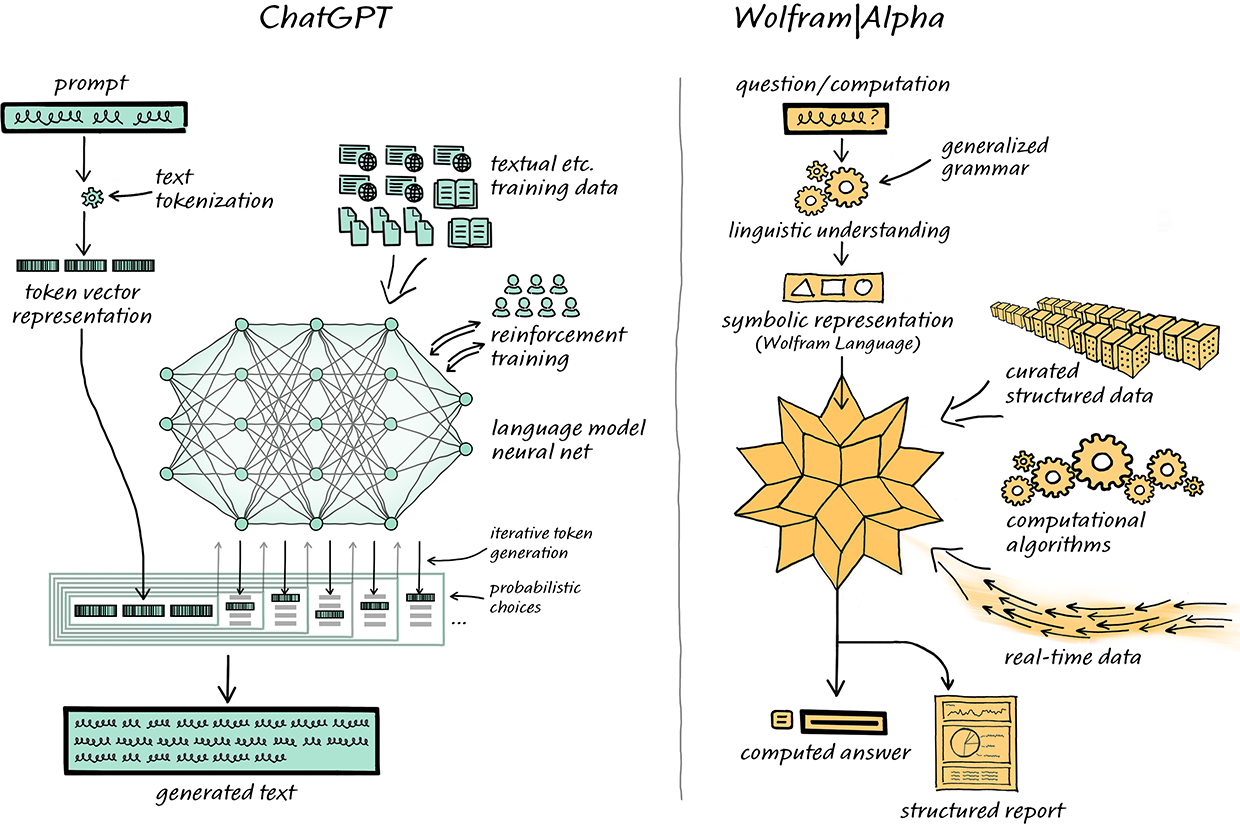TL;DR -- As we pursue our interest in technology, we will look at the spectrum. Today, a topic of much discussion is STEM. We deal with the 'M' part in this post as it supports the other pieces of the puzzle. In particular, Wolfram gets a little attention.
---
Earlier, we mentioned ChatGPT (CP) which came on the scene in November of 2022 and started to make waves, of various sorts. It was almost like a Rorschach test which people perceive differently and which reactions can be subjected to psychological analysis. Either love CP or not. Not only did reactions to it vary, but it has been put to a number of uses without any clear indication of quality.
Kids used it to do their homework, even in at college level. Many experts doubted its use in their work. Companies decided to apply it to their businesses, both as a process improvement as well as an extension of their products. Wits offered opinions.
What we did was exercise CP with queries of several contexts. The results will be studied at some point. Some quick analysis has already been written about. Some want to ban CP. Elon Musk did not like that Microsoft used it in their search engine, Bing.
We pondered some of the arguments that it might become known as a corrupter of youth. Answers were known to seem reasonable but were not. Mathematical queries had suspect results. Not to do the whole litany, but Wolfram noted one obvious factor: CP manipulates, quite well, the syntaxial aspects of its answer but knows little to semantics.
Some argue that models which can support reasoning will help. Plenty of ways exist to to this type of thing. We give one example below which deals with the basis of technology, namely, mathematics.
- Wolfram|Alpha as the Way to Bring Computational Knowledge Superpowers to ChatGPT
Wolfram, the company, is the product of the 1970s and has evolved with the computer. There are several aspects to their offerings, but computational mathematics and its use are the core of their products. So, STEM? Wolfram was there from the beginning. Let's leave this with an image that compares ChatGPT with Wolfram's offering. There will be more discussion as we go along.
 |
| Stephen Wolfram, Writings |
Remarks: Modified: 03/07/2023
03/07/2023 --
No comments:
Post a Comment